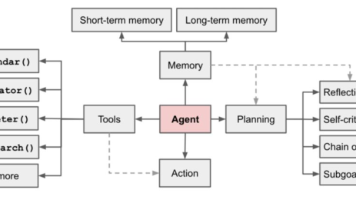LeetCode //C - 845. Longest Mountain in Array
This algorithm is used to find the longest "mountain" subarray in an array. A mountain range is defined as a subarray with a length ≥ 3, a peak, and strictly increasing values on the left and decreasi
845. Longest Mountain in Array
You may recall that an array arr is a mountain array if and only if:
- arr.length >= 3
- There exists some index i (0-indexed) with 0 < i < arr.length - 1 such that:
- arr[0] < arr[1] < … < arr[i - 1] < arr[i]
- arr[i] > arr[i + 1] > … > arr[arr.length - 1]
Given an integer array arr, return the length of the longest subarray, which is a mountain. Return 0 if there is no mountain subarray.
Example 1:
Input: arr = [2,1,4,7,3,2,5]
Output: 5
Explanation: The largest mountain is [1,4,7,3,2] which has length 5.
Example 2:
Input: arr = [2,2,2]
Output: 0
Explanation: There is no mountain.
Constraints:
- 1 < = a r r . l e n g t h < = 10 4 1 <= arr.length <= 10^4 1<=arr.length<=104
- 0 < = a r r [ i ] < = 10 4 0 <= arr[i] <= 10^4 0<=arr[i]<=104
From: LeetCode
Link: 845. Longest Mountain in Array
Solution:
Ideas:
-
Scan for a peak where arr[i-1] < arr[i] > arr[i+1].
-
From each peak, expand left while strictly increasing and right while strictly decreasing.
-
Track the maximum span; jump i to the end of the processed mountain.
-
Time O(n), space O(1).
Code:
int longestMountain(int* arr, int arrSize) {
if (arrSize < 3) return 0;
int i = 1, best = 0;
while (i < arrSize - 1) {
// Check if arr[i] is a peak
if (arr[i - 1] < arr[i] && arr[i] > arr[i + 1]) {
int l = i - 1;
int r = i + 1;
// Expand left (strictly increasing up to the peak)
while (l > 0 && arr[l - 1] < arr[l]) l--;
// Expand right (strictly decreasing after the peak)
while (r < arrSize - 1 && arr[r] > arr[r + 1]) r++;
int length = r - l + 1;
if (length > best) best = length;
// Skip to the end of this mountain to avoid reprocessing
i = r;
} else {
i++;
}
}
return best;
}
更多推荐
 已为社区贡献1条内容
已为社区贡献1条内容









所有评论(0)